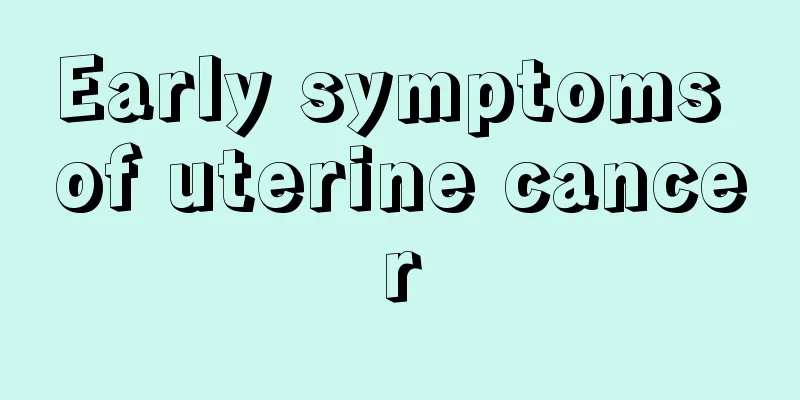What complications may occur with acute myocardial infarction?

|
Heart disease cannot be ignored. More and more people are busy with work and do not care much about minor heart discomfort, so many people ignore heart function diseases, which leads to worsening of the condition. Most patients with acute myocardial infarction have heart disease in the early stages, but it should also be noted that acute myocardial infarction is not necessarily related to heart disease, and it does not rule out the possibility of other organ diseases, so you must be careful. "Signals" outside the heart are easily ignored A typical acute myocardial infarction will alert most people, but there are four types of acute myocardial infarction in daily life that do not show acute and severe pain behind the sternum or in front of the heart and are easily overlooked. First, about 30% of patients with acute myocardial infarction experience gastrointestinal symptoms, such as abdominal bloating, hiccups, abdominal pain, nausea, vomiting, and diarrhea, which are often considered to be indigestion and acute gastroenteritis. When patients have severe abdominal pain, they often go to the surgical department, which delays treatment. The reasons for the above symptoms are that heart disease stimulates the vagus nerve, or the lesions are on the lower wall of the heart, or combined with insufficient blood supply to the mesenteric artery, causing gastrointestinal reactions. Second, patients mainly have respiratory symptoms, most of which manifest as coughing and wheezing; some only feel chest tightness and shortness of breath, or think they are not breathing enough. If the patient already has chronic bronchitis, it is easy to misdiagnose it as cor pulmonale. The mechanism of symptom occurrence is that during acute myocardial infarction, myocardial contractility and cardiac output decrease, causing pulmonary congestion and prone to bronchial infection. Third, patients experience neuropsychiatric symptoms: sudden slurred speech, paralysis of one side of the limbs, confusion, convulsions, etc., which are easily confused with acute cerebrovascular disease; some patients experience pain behind the sternum as well as pain in the throat, jaw, neck, shoulders, occipital region, forehead, and waist. The mechanism of symptom occurrence is that during an acute myocardial infarction, the amount of blood output from the heart drops sharply, leading to insufficient blood supply to the brain, especially in the elderly with pre-existing cerebral arteriosclerosis, who are more prone to cerebral circulation disorders. In addition, during an acute myocardial infarction, acidic metabolites stimulate the sympathetic nerve afferent fibers to produce pain, which can radiate to any part of the body innervated by the cervical and thoracic spinal nerves. Therefore, the above pain and discomfort must not be neglected by mistake as pharyngitis, dental disease, cervical spondylosis, periarthritis of the shoulder, or vascular headache. When elderly people experience the above pain and discomfort accompanied by palpitations and sweating, they should seek medical attention in time to do an electrocardiogram and measure serum enzymes in order to achieve early diagnosis and treatment. |
<<: How to care for acute apical periodontitis?
>>: What are the methods for tightening facial skin?
Recommend
Is immunotherapy for lung cancer expensive? How to treat lung cancer to increase the chance of recovery?
Lung cancer is a very serious disease with very h...
Benefits and methods of gargling with salt water
We know that oral problems are common clinical pr...
What are the Chinese medicine formulas for lowering blood sugar?
People with high blood sugar or diabetes must be ...
Early symptoms of hyperthyroidism
Hyperthyroidism is a relatively common disease, e...
Can geographic tongue heal itself? Will it get better on its own?
There are many causes of geographic tongue, which...
What should I do if I haven't gotten pregnant after taking folic acid for three months?
Many female friends actually have a very hard tim...
How to completely treat small cell lung cancer
How to completely treat small cell lung cancer? I...
Why does a slow heart rate lead to high blood pressure
If you have a bad heart, you must pay more attent...
Will glioma patients die?
Will glioma patients die? This is a question that...
What are the treatment methods for lung cancer? Analysis of the effect of TCM in assisting the treatment of lung cancer
Lung cancer is a very serious disease. It threate...
What are the contraindications of electrotherapy for opening meridians
Foot-stepping electrotherapy to open up the merid...
A complete list of seasonal vegetables in summer
If you pay close attention, you will find that we...
Is it better to fill or extract decayed teeth?
Whether tooth decay should be filled or extracted...
Can babies with urticaria be vaccinated?
If your baby has urticaria, vaccination will be u...
Can I still eat spicy food if I have prostate cancer? Dietary taboos for prostate cancer patients
No matter what disease you have, there will be ce...









